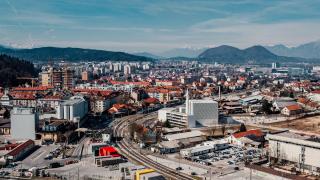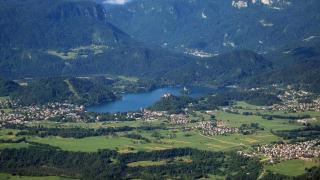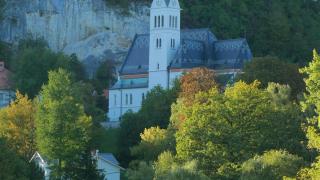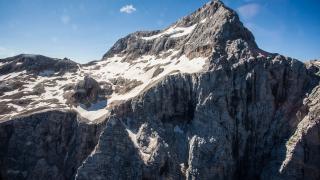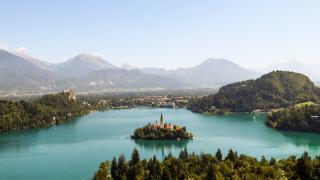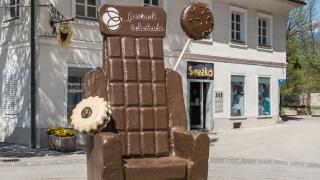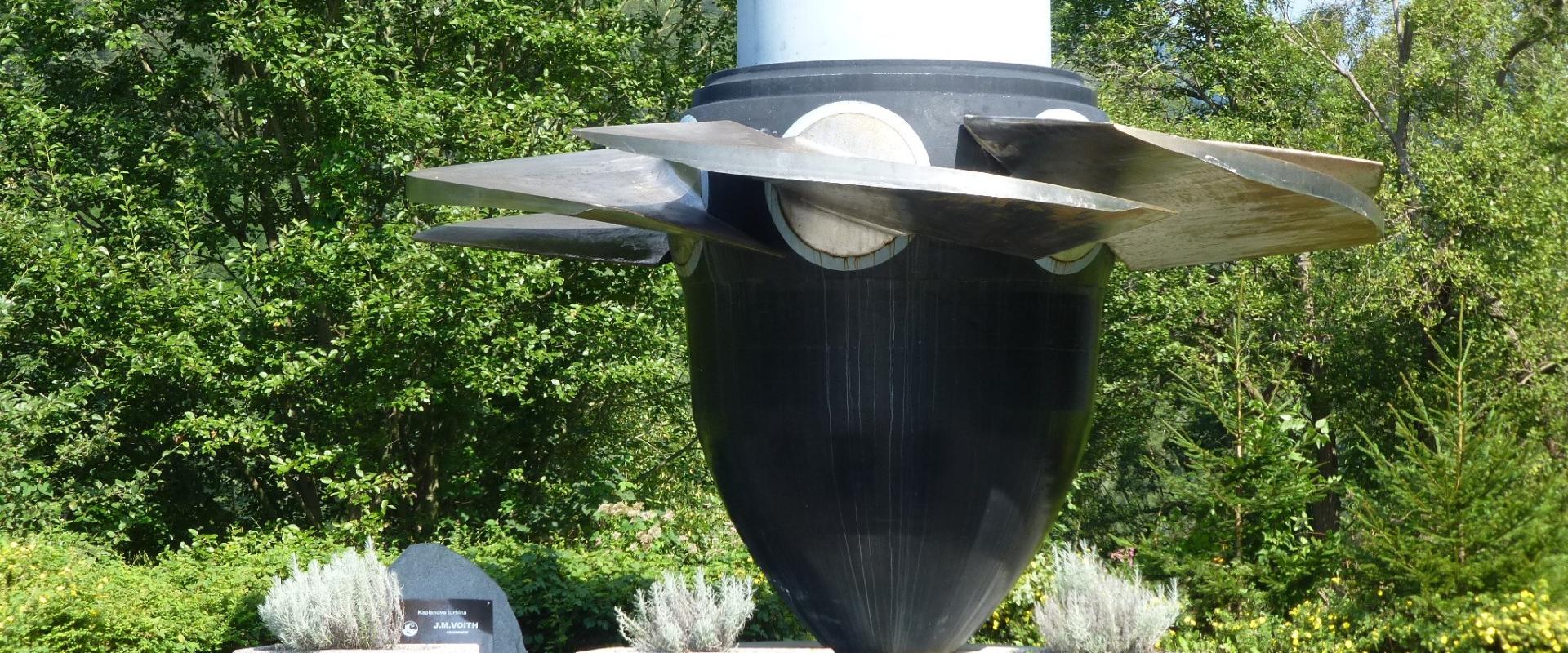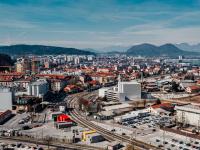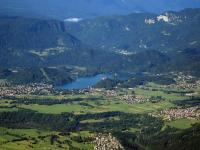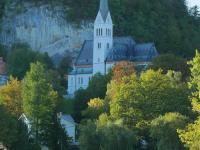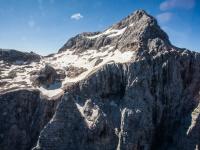Slovenian: More Than Words
Slovenian (slovenščina) is the official language of Slovenia. Nearly 2 million people in Slovenia speak it daily. Slovenian is used in all state institutions, schools, and media. Street signs, menus, and public announcements are in Slovenian. Regional dialects exist, but standard Slovenian is taught in schools.
- All official documents are in Slovenian.
- Most Slovenians use Slovenian at home and work.
- Regional pride is strong; dialects like Prekmurje and Primorska are valued locally.
- Slovenian is required for citizenship exams.
- TV and radio broadcasts are primarily in Slovenian.
Slovenian uses the Latin alphabet. Formal address (vikanje) is common in business or with elders. Informal (tikanje) is used among friends. Slovenians appreciate when foreigners use basic phrases like "hvala" (thank you) or "prosim" (please).
Language is a key part of Slovenian identity. It connects people across regions, from Ljubljana to Maribor. Understanding Slovenian helps visitors engage with local culture and daily life.
How Slovenian Sounds & Works
Slovenian in Slovenia uses the Latin alphabet. There are 25 letters, with "q," "w," "x," and "y" missing. Pronunciation matches spelling closely. Each letter has a fixed sound. Stress can fall on any syllable, which changes word meaning. Ljubljana is pronounced [lyoo-BLYAH-nah]. The letter "č" sounds like "ch" in "chocolate." "Š" is like "sh" in "shoe." "Ž" is like "s" in "measure."
Slovenian has a unique dual grammatical number. This means there are special forms for exactly two people or things. Only a few European languages use dual.
Regional dialects are strong in Slovenia. There are over 40 dialects. Locals from Maribor, Koper, and Ljubljana may sound different. Standard Slovenian is taught in all schools.
Compared to other Slavic languages:
- Slovenian is closest to Croatian but has more German and Italian loanwords.
- It is the only Slavic language with both dual and a full case system.
Travelers find Slovenian accessible due to the Latin script. Most signs, menus, and tickets in Slovenia use Slovenian. Learning basic sounds helps with navigation and daily interactions.
Essential Phrases for Travelers
Slovenian is spoken everywhere in Slovenia. Locals appreciate when visitors use Slovenian phrases. Most signs in Ljubljana, Maribor, and Bled are in Slovenian. English is common in tourist areas, but not in rural villages.
Must-know greetings:
- "Dober dan" (Good day) – use in shops, hotels, and restaurants.
- "Hvala" (Thank you) – always polite after service.
- "Prosim" (Please/You're welcome) – for requests or after "hvala".
Basic questions:
- "Koliko stane?" (How much does it cost?) – for prices in euros (€).
- "Kje je stranišče?" (Where is the toilet?) – essential in cafes or bus stations.
- "Ali govorite angleško?" (Do you speak English?) – use when unsure.
Restaurants and hotels:
- "Imate vegetarijansko jed?" (Do you have a vegetarian dish?)
- "Rezervacija na ime..." (Reservation under the name...)
Transportation:
- "Kdaj odpelje avtobus?" (When does the bus leave?)
- "Kje je železniška postaja?" (Where is the train station?)
Emergencies:
- "Pomoč!" (Help!)
- "Pokličite policijo!" (Call the police!)
Pronunciation tips:
- Every letter is pronounced. "C" is "ts" as in "cats". "Č" is "ch" as in "chess".
- Street signs use Slovenian names. Example: "Trg republike" (Republic Square).
Using Slovenian opens doors. Even a few words often lead to friendlier service and smiles.
Formal vs. Informal: Speaking Like a Local
Slovenian in Slovenia uses two forms: vikanje (formal) and tikanje (informal).
- Vikanje is used with strangers, elders, or in official settings. For example, in Ljubljana’s banks or government offices, always use vikanje.
- Tikanje is for friends, family, or young people. In cafes in Maribor or among students, tikanje is common.
- Age matters. Use vikanje for anyone over 60 unless invited to use tikanje.
- At work, Slovenians start with vikanje. Colleagues may switch to tikanje after months or years.
Examples:
- Formal: "Kako ste?" (How are you?)
- Informal: "Kako si?" (How are you?)
- Formal: "Ali mi lahko pomagate?" (Can you help me?)
- Informal: "Mi lahko pomagaš?" (Can you help me?)
Slovenians value respectful language. Using vikanje shows politeness and understanding of local customs. Mistakes are forgiven, but effort is appreciated.
Overcoming Language Barriers
English is widely spoken in Slovenia, especially in Ljubljana, Bled, and coastal towns. Younger Slovenians (under 35) often speak fluent English. In tourist areas, hotel staff and guides use English daily. In rural villages, English is less common. Older Slovenians may only speak Slovenian or German. Supermarkets, like Mercator or Spar, have Slovenian-only labels. Pharmacy staff in Maribor or Celje may use basic English.
Tips for communicating without Slovenian:
- Use translation apps (Google Translate works well for Slovenian).
- Write down addresses or names in Slovenian for taxi drivers.
- Point to items or use gestures in markets (tržnica).
- Learn key phrases: "Ali govorite angleško?" (Do you speak English?)
- Say "Hvala" (Thank you) when helped.
Formal address (vikanje) is expected with elders or officials. In restaurants, menus may be in Slovenian and English. If unsure, politely ask: "Lahko v angleščini, prosim?" (In English, please?). Locals appreciate effort, even if pronunciation is not perfect.
Quick Reference & Pro Traveler Tips
Slovenian is the only official language in Slovenia. Most public transport signs, menus, and street names are in Slovenian. Locals appreciate any effort to speak Slovenian, even a simple hvala (thank you) or prosim (please). Use vikanje (formal) with older people or officials. Tikanje (informal) is common among friends and young people. Phrasebooks are sold at Ljubljana bookstores for around €10. The Ling App and Slovene Learning Online offer free Slovenian lessons. Language schools in Ljubljana offer short courses, starting from €50 per week. Try basic phrases in markets or cafés; locals often respond positively. Many Slovenians switch to English if you struggle, but trying Slovenian first shows respect. Learning numbers helps with prices and transport. Short greetings like dober dan (good day) or adijo (bye) are used daily. Using Slovenian, even minimally, can open conversations and deepen your travel experience.
